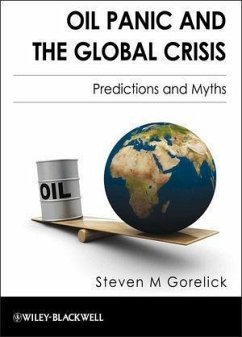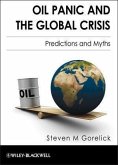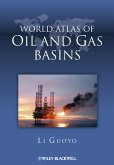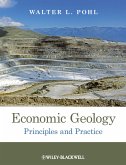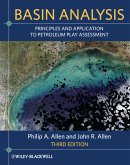Dieser Download kann aus rechtlichen Gründen nur mit Rechnungsadresse in A, B, BG, CY, CZ, D, DK, EW, E, FIN, F, GR, HR, H, IRL, I, LT, L, LR, M, NL, PL, P, R, S, SLO, SK ausgeliefert werden.
"The dynamics around oil have shaped our lives for many decades and will do so for many decades to come. Surprisingly, many misconceptions exist around the extent and availability of this fundamental resource. This book is a lucid compilation of facts which is a must-read for anyone interested in energy and the environment." -- Ashok Belani, Chief Technology Officer of Schlumberger Limited
"It is a pleasure to read an informed, balanced, and lively account of the prospect of meeting the world's need for oil in coming years. A combination of sound economics, attention to history's lessons, and political leadership offer the way forward. Read this book and decide what you should do." -- John Deutch, Institute Professor, Massachusetts Institute of Technology, former Director of Central Intelligence.
"A very readable statistical history of global oil depletion that frames and illuminates the century-old debate about "peak oil" or the "end of oil." A suitable text for introductory resource economics or for the general reader with a love for facts and detail." -- Sylvio J Faim, Los Alamos National Laboratory
"Are we running out of oil or do we have plenty of this resource? Will the oil age end before we run out of oil? Have we reached the maximum daily production rate of oil or are we already on the down slide? Professor Gorelick has compiled the necessary data and provided his own incisive analysis to assist the reader in understanding the complex issues related to the supply and demand hydrocarbons. A must read for an understanding of both the domestic and global energy picture." -- Professor Khalid Aziz, Department of Energy Resources Engineering at Stanford
"The dynamics around oil have shaped our lives for many decades and will do so for many decades to come. Surprisingly, many misconceptions exist around the extent and availability of this fundamental resource. This book is a lucid compilation of facts which is a must-read for anyone interested in energy and the environment." -- Ashok Belani, Chief Technology Officer of Schlumberger Limited
"It is a pleasure to read an informed, balanced, and lively account of the prospect of meeting the world's need for oil in coming years. A combination of sound economics, attention to history's lessons, and political leadership offer the way forward. Read this book and decide what you should do." -- John Deutch, Institute Professor, Massachusetts Institute of Technology, former Director of Central Intelligence.
"A very readable statistical history of global oil depletion that frames and illuminates the century-old debate about "peak oil" or the "end of oil." A suitable text for introductory resource economics or for the general reader with a love for facts and detail." -- Sylvio J Faim, Los Alamos National Laboratory
It is a book serious students of the world oil market should read, not because Gorelick has all the answers but because his account is well reasoned, well informed, and argued honestly, with respect for responsible opposing viewpoints." (David Lloyd Greene, Science, May 2010)
"The book is a refreshing and methodical expose´ of the most common myths about oil that many of us hold as truths. Gorelick weaves an intriguing story from what might have been a dreadfully boring, yet impressive collection of data and observations. It was a pleasure to read and learn from this book, which I highly recommend to experts and non-experts alike, particularly our leaders in government." (Kenneth E. Peters, Geofluids, 2010)
"In all my years as a journalist who has written on oil and follows the crude markets closely, I feel this book is the most engaging, detailed and well written one that I have come across in its genre. I am happy to recommend it to commodities professionals, economists, students and just about anyone interested in reading up on the oil depletion debate." (Gaurav Sharma, Infrastructure Journal 2010)
"Professor Gorelick's book is a valuable contribution to the debate about peak oil and could profitably be read by anybody requiring a pathway through the economic and political smokescreens which have grown up around the topic." (Geo Expro, September 2010)

